August 23 stands as one of history’s most eventful days, witnessing the rise and fall of empires, groundbreaking discoveries, and moments that shaped our modern world across centuries of human achievement.

Politics and Government Events on August 23
1939 – Molotov-Ribbentrop Pact Signed
Nazi Germany and the Soviet Union shocked the world by signing their non-aggression pact. The agreement contained secret protocols dividing Poland and the Baltic states into German and Soviet spheres of influence.
This diplomatic bombshell paved the way for World War II’s outbreak. The pact revealed Stalin’s willingness to collaborate with Hitler despite their ideological differences.
1944 – Romania Switches Sides in World War II

King Michael of Romania courageously dismissed Marshal Antonescu’s pro-Nazi government and ordered his arrest. Romania dramatically switched from the Axis to the Allied powers in a bold political maneuver.
This decision accelerated Germany’s retreat from the Balkans and saved countless Romanian lives. The king’s actions demonstrated remarkable leadership during Europe’s darkest hour.
1990 – Armenia Declares Independence
Armenia proclaimed its independence from the crumbling Soviet Union in a historic parliamentary vote. The declaration marked the beginning of the end for Soviet control over the Caucasus region.
Armenian leaders embraced democracy and national sovereignty after decades of communist rule. This momentous decision inspired other Soviet republics to seek their own independence.
1990 – German Reunification Announced

East and West Germany officially announced their reunification would occur on October 3rd. The announcement ended decades of division that had symbolized Cold War tensions.
German leaders worked tirelessly to merge two vastly different political and economic systems. This historic decision represented the ultimate triumph of democratic values over communist ideology.
1946 – German States Reconstituted
The British Military Government issued Ordinance No. 46, formally establishing the German states of Hanover and Schleswig-Holstein. This administrative restructuring helped rebuild Germany’s federal system after Nazi centralization.
The new states provided democratic governance structures for war-torn communities. These constitutional foundations would later support Germany’s remarkable post-war recovery and democratization.
1985 – West German Spy Defects
Hans Tiedge, West Germany’s top counter-intelligence official, shocked the intelligence community by defecting to East Germany. His betrayal exposed numerous Western intelligence operations behind the Iron Curtain.
Tiedge’s defection revealed the extent of East German infiltration into Western security services. The scandal forced major reforms in West German intelligence agencies.
2011 – Gaddafi Regime Falls
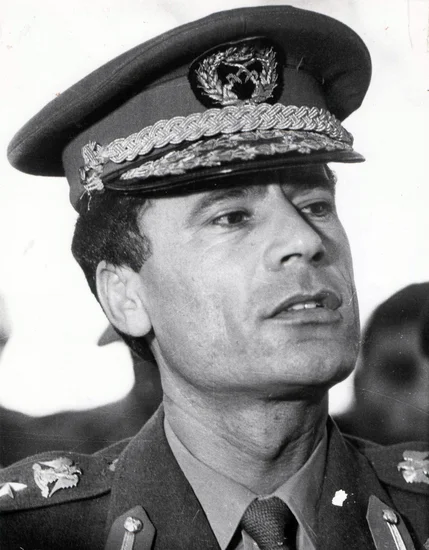
Libyan rebels captured Muammar Gaddafi’s Bab al-Azizia compound, effectively ending his 42-year dictatorship. The National Transitional Council’s victory marked the climax of the Arab Spring’s most violent conflict.
Gaddafi’s overthrow promised democratic reforms for the Libyan people. However, the power vacuum would later lead to prolonged civil conflict and regional instability.
Military and Naval History on August 23
1914 – Great Retreat Begins
British and French forces began their desperate Great Retreat as German armies advanced toward Paris. The retreat tested Allied resolve during World War I’s opening campaign.
Military commanders faced the challenging task of preserving their forces while avoiding encirclement. This strategic withdrawal would ultimately enable the decisive Battle of the Marne.
1914 – Japan Declares War on Germany
Japan entered World War I by declaring war on Germany, expanding the conflict to the Pacific. Japanese forces immediately targeted German colonies in China and the Pacific islands.
This declaration strengthened the Allied cause while advancing Japanese imperial ambitions. Japan’s entry marked the beginning of its rise as a major Pacific power.
1942 – Battle of Stalingrad Begins
German forces launched their assault on Stalingrad, beginning the war’s most decisive urban battle. The six-month siege would determine the fate of Nazi Germany’s eastern campaign.
Soviet defenders prepared for desperate house-to-house fighting in the ruined city. This battle would become the turning point of World War II’s Eastern Front.
1943 – Kharkiv Liberated
Soviet forces liberated Kharkiv for the second time following their victory at Kursk. The Red Army’s advance marked Germany’s irreversible retreat from Ukraine.
This liberation demonstrated Soviet military superiority after years of devastating defeats. The victory boosted Soviet morale and accelerated Germany’s eastern collapse.
1944 – Marseille Liberated
Allied forces liberated the strategic port city of Marseille from German occupation. The liberation opened crucial supply lines for the advancing Allied armies in southern France.
French resistance fighters assisted the Allied assault on German defensive positions. Marseille’s liberation accelerated the German retreat toward the Rhine River.
1944 – Freckleton Air Disaster

A B-24 Liberator bomber crashed into a school in Freckleton, England, killing 61 people including 38 children. The tragedy occurred during a training flight in severe weather conditions.
The disaster highlighted the dangers faced by civilians living near military airfields. This accident became one of Britain’s worst wartime aviation disasters.
1958 – Taiwan Strait Crisis Begins
Chinese communist forces began bombarding the Taiwanese island of Quemoy, triggering the Second Taiwan Strait Crisis. The artillery barrage threatened to escalate into full-scale warfare.
American forces prepared to defend Taiwan against potential invasion. The crisis tested Cold War alliances and nuclear deterrence strategies in East Asia.
Science and Discovery Milestones on August 23
1966 – First Photo of Earth from Moon Orbit
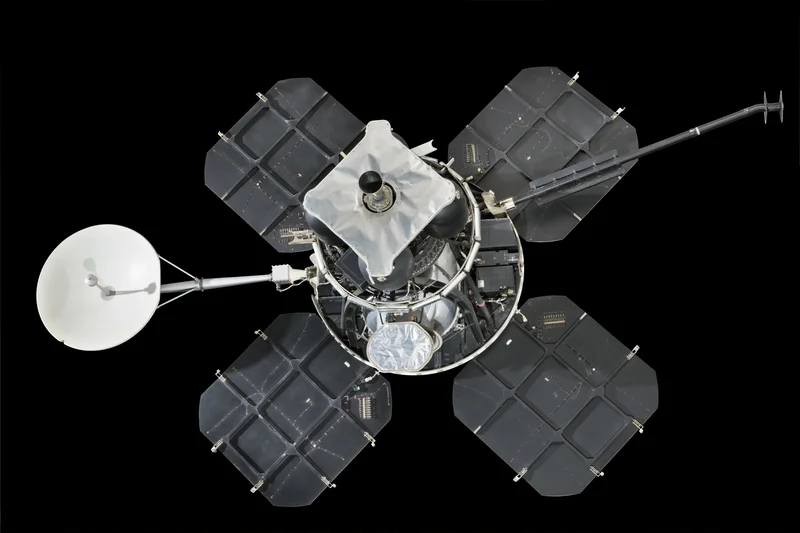
Lunar Orbiter 1 captured humanity’s first photograph of Earth from lunar orbit. This iconic image revolutionized our perspective on our planet’s place in the cosmos.
The photograph showed Earth as a fragile blue marble suspended in the vast darkness of space. This historic image inspired the environmental movement and space exploration programs.
1954 – C-130 Hercules First Flight
The Lockheed C-130 Hercules military transport aircraft completed its maiden flight. This versatile aircraft would become one of aviation’s most successful and enduring designs.
The C-130’s robust construction and reliability made it ideal for military and civilian operations. This aircraft would serve in conflicts and humanitarian missions worldwide for decades.
1923 – First Aerial Refueling
Captain Lowell Smith and Lieutenant John Richter achieved the first successful mid-air refueling using De Havilland DH-4B aircraft. Their 37-hour endurance flight demonstrated aviation’s expanding capabilities.
This breakthrough technology would revolutionize military aviation and long-distance flight operations. Aerial refueling became essential for modern air force strategic operations.
1921 – British Airship Disaster
The R-38 airship suffered catastrophic structural failure over Hull, England, crashing into the Humber Estuary. Only four crew members survived from the 49 British and American personnel aboard.
This disaster highlighted the dangers of early airship technology and design flaws. The tragedy influenced future airship safety regulations and construction standards.
1991 – World Wide Web Goes Public
Tim Berners-Lee opened the World Wide Web to public access, revolutionizing global communications. This decision transformed how humanity shares information and conducts business.
The Web’s public release accelerated the digital revolution and connected billions of people worldwide. This technological breakthrough reshaped education, commerce, and social interaction.
2007 – Romanov Remains Discovered
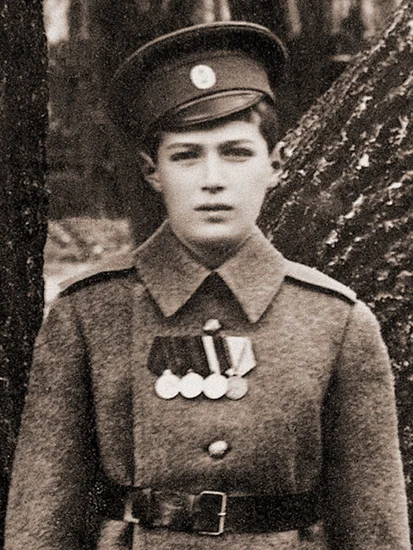
Russian archaeologists discovered the skeletal remains of Tsarevich Alexei and Grand Duchess Anastasia near Yekaterinburg. The find solved one of history’s greatest mysteries surrounding the Romanov family’s fate.
DNA analysis confirmed the identity of Russia’s last royal family members. This discovery provided closure to decades of speculation about the imperial family’s execution.
Cultural and Arts Events on August 23
1973 – Stockholm Bank Robbery Creates Syndrome

A failed bank robbery in Stockholm evolved into a hostage crisis that lasted five days. The hostages developed sympathy for their captors, leading psychologists to identify “Stockholm syndrome.”
This psychological phenomenon became widely studied in criminology and psychology. The term now describes victims who develop positive feelings toward their captors in similar situations.
1954 – Royal Mediterranean Cruise
Queen Frederica of Greece organized the “Cruise of the Kings,” departing from Marseille with European royalty aboard. The luxury cruise showcased post-war European aristocratic culture and diplomacy.
The cruise attracted international media attention and promoted Mediterranean tourism. This glamorous event symbolized Europe’s recovery from wartime devastation.
1904 – Tire Chain Patent Granted
The automobile tire chain received its patent, improving vehicle safety in winter conditions. This innovation addressed growing concerns about automotive safety as car ownership expanded.
Tire chains became essential equipment for winter driving in mountainous regions. The invention supported the automotive industry’s growth and improved road safety standards.
1975 – Pontiac Silverdome Opens

The Pontiac Silverdome opened as a state-of-the-art sports facility in Michigan. The domed stadium featured innovative design elements and hosted major sporting events.
The Silverdome became home to the Detroit Lions and hosted Super Bowl XVI. This architectural achievement demonstrated American stadium design innovation during the 1970s.
Religious and Social Events on August 23
1948 – World Council of Churches Formed
Representatives from 147 churches across 44 countries established the World Council of Churches. This ecumenical organization promoted Christian unity and interfaith dialogue worldwide.
The council addressed social justice issues and promoted peace during the Cold War era. This organization became a powerful voice for human rights and religious freedom.
1989 – Baltic Way Demonstration
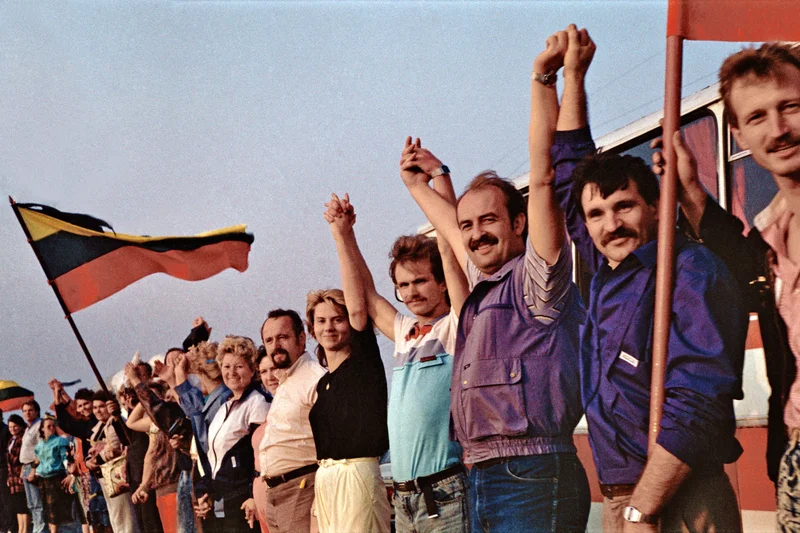
Two million people from Estonia, Latvia, and Lithuania formed a human chain stretching 675 kilometers. The peaceful demonstration protested Soviet occupation and demanded independence.
The Baltic Way became one of the largest peaceful protests in history. This remarkable display of solidarity accelerated the Soviet Union’s collapse and Baltic independence.
1929 – Hebron Massacre

Arab attacks on the Jewish community in Hebron resulted in 65-68 deaths and forced evacuation of surviving residents. The violence reflected escalating tensions in British Mandate Palestine.
The massacre destroyed Hebron’s ancient Jewish community and increased regional instability. This tragic event contributed to the ongoing Israeli-Palestinian conflict.
1970 – Salad Bowl Strike Begins
César Chávez organized the largest farm worker strike in American history, demanding better working conditions and wages. The strike mobilized thousands of agricultural workers across California.
The movement brought national attention to migrant worker exploitation and labor rights. Chávez’s leadership inspired civil rights activism and improved conditions for farm workers.
1975 – Wave Hill Walk-off Begins
Gurindji people began their eight-year protest at Wave Hill Station, demanding recognition of Indigenous land rights. The walk-off became a landmark event in Australian Indigenous history.
The protest inspired national legislation recognizing Aboriginal land rights. This peaceful demonstration transformed Australian attitudes toward Indigenous peoples and their traditional territories.
Business and Economic Events on August 23
1994 – Eugene Bullard Commissioned
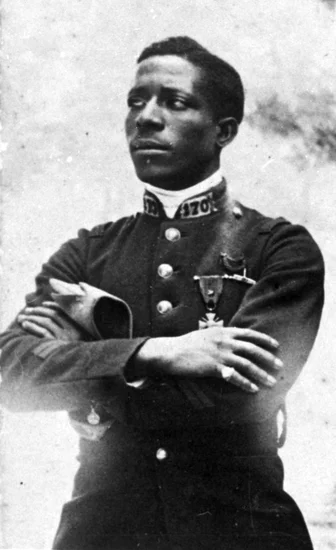
The U.S. Air Force posthumously commissioned Eugene Bullard as Second Lieutenant, recognizing America’s only African American World War I pilot. This overdue recognition addressed decades of racial discrimination in military service.
Bullard’s commission highlighted the contributions of African American veterans previously denied recognition. The ceremony symbolized progress in military racial integration and historical justice.
1990 – Saddam Hussein’s Hostage Diplomacy

Iraqi President Saddam Hussein appeared on television with Western hostages, attempting to prevent military action against Iraq. This propaganda effort backfired by demonstrating Iraq’s disregard for international law.
The hostage crisis strengthened international resolve against Iraqi aggression. Hussein’s tactics ultimately accelerated the coalition’s military preparations for the Gulf War.
2000 – Gulf Air Flight 072 Disaster

Gulf Air Flight 072 crashed into the Persian Gulf near Bahrain, killing all 143 passengers and crew members. The tragedy highlighted aviation safety concerns in the Middle East.
The crash prompted investigations into pilot training and aircraft maintenance standards. This disaster led to improved safety protocols for regional airlines.
2006 – Natascha Kampusch Escapes

Natascha Kampusch escaped after eight years of captivity, shocking the world with her survival story. Her captor Wolfgang Přiklopil had abducted her at age ten in Austria.
Kampusch’s escape ended one of Austria’s most notorious criminal cases. Her survival demonstrated remarkable resilience and captured international media attention.
Transportation and Infrastructure on August 23
2011 – Virginia Earthquake

A magnitude 5.8 earthquake struck Virginia, causing damage to monuments in Washington, D.C. The rare East Coast earthquake resulted in $200-300 million in damages.
The earthquake forced evacuations of government buildings and temporarily shut down airports. This unusual seismic event highlighted the vulnerability of Eastern infrastructure to natural disasters.
2012 – Slovenian Balloon Crash
A hot-air balloon crashed near Ljubljana, Slovenia, killing six people and injuring 28 others. The accident raised questions about balloon safety regulations and pilot training.
The crash prompted investigations into recreational aviation safety standards. This tragedy led to stricter regulations governing hot-air balloon operations in Europe.
2010 – Manila Hostage Crisis

A hostage crisis at Manila’s Quirino Grandstand ended with nine deaths, including the perpetrator. The incident damaged Philippines’ international reputation and tourism industry.
The crisis exposed weaknesses in Philippine police crisis response capabilities. The tragic outcome prompted reforms in law enforcement training and procedures.
2023 – Wagner Group Plane Crash
A business jet carrying Wagner Group leaders crashed in Russia, killing all ten people aboard. The crash eliminated key figures from the Russian private military company.
The incident occurred amid tensions between Wagner leadership and Russian military officials. This mysterious crash raised questions about internal Russian power struggles.
Sports and Recreation on August 23
2011 – Libyan Sports Under Gaddafi Ends
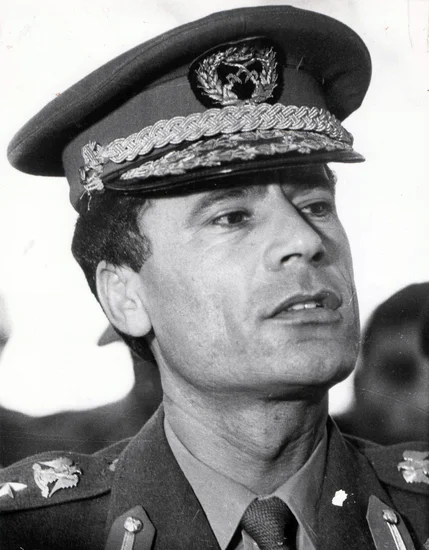
The fall of Gaddafi’s regime transformed Libyan sports by ending state control over athletic programs. Athletes gained freedom to compete internationally without political restrictions.
Libyan sports federations began rebuilding relationships with international organizations. The political change promised new opportunities for Libyan athletes on the world stage.
2013 – Palmasola Prison Riot
A violent riot at Bolivia’s Palmasola prison complex killed 31 inmates and highlighted prison overcrowding issues. The violence reflected broader problems in South American correctional systems.
The riot prompted discussions about prison reform and inmate rehabilitation programs. This tragedy exposed the urgent need for penal system improvements in Bolivia.
1904 – Automotive Innovation
The patenting of tire chains represented a crucial safety advancement for early automotive racing and winter driving. This innovation supported the growth of automobile sports and recreational driving.
Racing drivers and enthusiasts embraced tire chains for improved traction in challenging conditions. The invention contributed to expanding automotive recreation and competitive events.
Notable Births on August 23
1912 – Gene Kelly Born
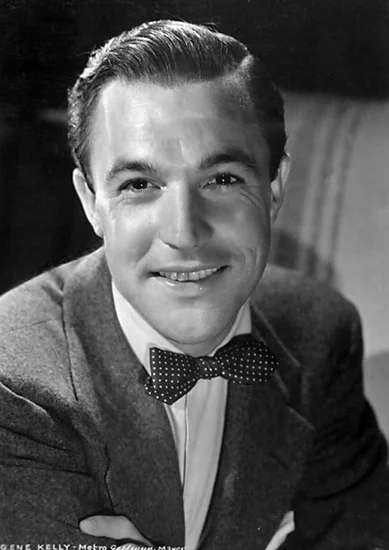
American dancer, actor, and choreographer Gene Kelly entered the world in Pittsburgh, Pennsylvania. His innovative approach to film dance would revolutionize Hollywood musicals.
Kelly’s athletic dancing style brought masculine energy to ballet and tap dancing. His creative vision transformed movie musicals into artistic expressions that influenced generations of performers.
1978 – Kobe Bryant Born

Basketball legend Kobe Bryant was born in Philadelphia, Pennsylvania, destined for greatness on the courts. His competitive drive and work ethic would define his legendary career.
Bryant’s “Mamba Mentality” inspired athletes worldwide to pursue excellence relentlessly. His impact extended beyond basketball through philanthropy and business ventures until his tragic death in 2020.
1921 – Kenneth Arrow Born

American economist Kenneth Arrow was born in New York City, future Nobel Prize laureate. His groundbreaking work in economic theory would influence policy decisions worldwide.
Arrow’s contributions to welfare economics and social choice theory earned him the Nobel Prize. His mathematical approach to economic problems established new standards for economic research.
1931 – Barbara Eden Born

American actress Barbara Eden was born in Tucson, Arizona, destined for television stardom. Her iconic role as Jeannie would make her a household name worldwide.
Eden’s portrayal of the magical genie in “I Dream of Jeannie” defined 1960s television comedy. Her career spanned decades, entertaining multiple generations of viewers.
1949 – Shelley Long Born

American actress Shelley Long was born in Fort Wayne, Indiana, future star of television and film. Her comedic timing would earn her critical acclaim and popular success.
Long’s portrayal of Diane Chambers in “Cheers” earned her Emmy Awards and Golden Globe recognition. Her transition from television to film demonstrated her versatile acting abilities.
1949 – Rick Springfield Born

Australian-American musician Rick Springfield was born in Sydney, Australia, destined for rock and roll fame. His dual career as musician and actor would bring him international recognition.
Springfield’s hit “Jessie’s Girl” became an anthem of the 1980s rock era. His soap opera work on “General Hospital” introduced him to daytime television audiences.
1978 – Julian Casablancas Born

American singer-songwriter Julian Casablancas was born in New York City, future frontman of The Strokes. His musical vision would revitalize rock music in the early 2000s.
Casablancas led the garage rock revival movement that influenced a generation of musicians. His songwriting and distinctive vocal style defined alternative rock for the new millennium.
1932 – Robert Solow Born

American economist Robert Solow was born in Brooklyn, New York, future Nobel Prize winner. His work on economic growth theory would influence macroeconomic policy worldwide.
Solow’s growth model explained how economies develop over time through technological progress. His research earned him the Nobel Prize and established him as a leading economic theorist.
Notable Deaths on August 23
1926 – Rudolph Valentino Dies

Italian-American actor Rudolph Valentino died in New York City at age 31, shocking his devoted fans worldwide. His sudden death from peritonitis ended the career of cinema’s greatest romantic star.
Valentino’s funeral drew massive crowds of grieving fans, demonstrating his enormous cultural impact. His death marked the end of silent film’s most glamorous era.
1927 – Sacco and Vanzetti Executed
Italian anarchists Nicola Sacco and Bartolomeo Vanzetti were executed in Massachusetts despite worldwide protests. Their controversial trial and execution highlighted issues of immigrant rights and judicial fairness.
The case became a symbol of American justice system flaws and anti-immigrant sentiment. Their deaths sparked international outrage and influenced civil rights movements for decades.
1960 – Oscar Hammerstein II Dies
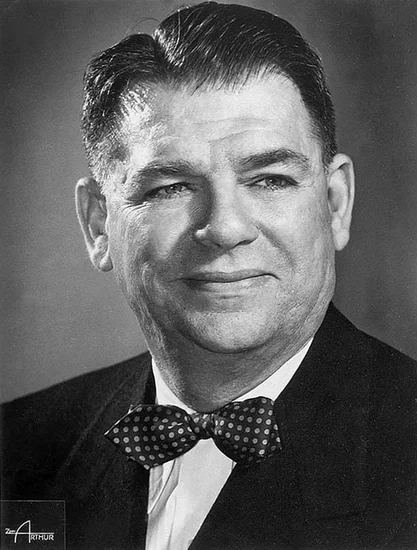
American lyricist Oscar Hammerstein II died in Pennsylvania, ending his legendary partnership with Richard Rodgers. His contributions to American musical theater established new artistic standards.
Hammerstein’s lyrics for “Oklahoma!” and “South Pacific” revolutionized Broadway storytelling. His death marked the end of musical theater’s golden age.
1982 – Stanford Moore Dies

American biochemist Stanford Moore died in New York, leaving behind groundbreaking research in protein chemistry. His Nobel Prize-winning work advanced understanding of enzyme structure and function.
Moore’s techniques for analyzing amino acid sequences revolutionized biochemistry research. His scientific contributions enabled major advances in medical research and drug development.
2003 – Bobby Bonds Dies

American baseball player Bobby Bonds died in California, ending the career of one of baseball’s most versatile athletes. His combination of power hitting and base stealing made him a unique player.
Bonds’ athletic ability influenced his son Barry’s record-breaking career. His death marked the loss of a baseball pioneer who redefined outfield play.
1989 – R.D. Laing Dies

Scottish psychiatrist R.D. Laing died in France, concluding his controversial career in mental health treatment. His radical approaches to schizophrenia treatment challenged traditional psychiatric methods.
Laing’s anti-psychiatry movement influenced mental health care reform worldwide. His death ended an era of psychiatric innovation and patient advocacy.
2006 – Maynard Ferguson Dies
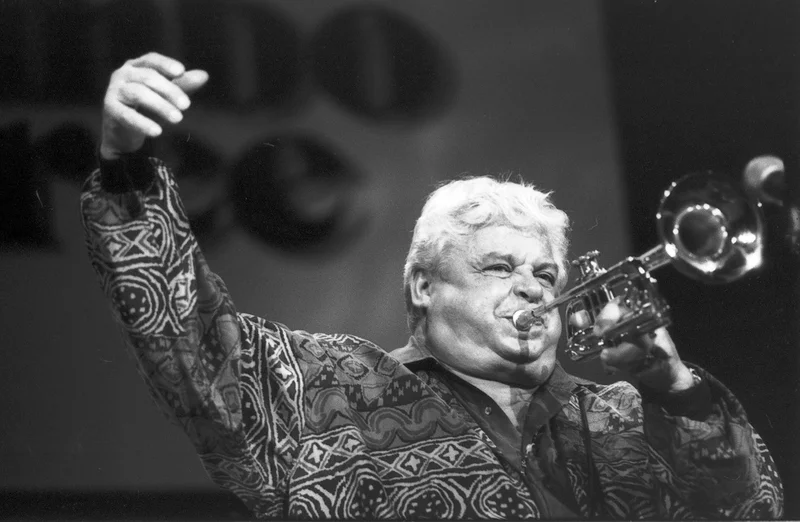
Canadian trumpet player Maynard Ferguson died in California, silencing one of jazz’s most distinctive voices. His high-note trumpet playing and big band leadership inspired generations of musicians.
Ferguson’s fusion of jazz and rock elements created a unique sound that attracted younger audiences. His death marked the loss of a jazz education pioneer.
1987 – Didier Pironi Dies

French Formula One driver Didier Pironi died in a powerboat racing accident, ending his racing career tragically. His F1 career included victories and championship contention before injury forced retirement.
Pironi’s transition to powerboat racing demonstrated his continued passion for speed and competition. His death highlighted the dangers faced by professional racing drivers.
Holidays and Observances on August 23
International Day for the Remembrance of the Slave Trade and its Abolition
UNESCO established this day to commemorate the abolition of slavery and honor victims of the transatlantic slave trade. The observance promotes education about slavery’s historical impact and ongoing legacy.
Communities worldwide organize educational programs and memorial services on this date. The day encourages reflection on human rights progress and continuing struggles against modern slavery.
European Day of Remembrance for Victims of Stalinism and Nazism
The European Union designated this Black Ribbon Day to remember victims of totalitarian regimes. The observance promotes awareness of 20th century political oppression and genocide.
Memorial ceremonies across Europe honor millions who suffered under Stalin and Hitler. The day emphasizes the importance of protecting democracy and human rights.
Day of the National Flag (Ukraine)

Ukraine celebrates its national flag on this date, honoring the blue and yellow banner’s historical significance. The observance promotes Ukrainian national identity and cultural pride.
The celebration includes flag-raising ceremonies and patriotic events throughout Ukraine. Citizens display flags to demonstrate national unity and independence.
Liberation from Fascist Occupation Day (Romania)
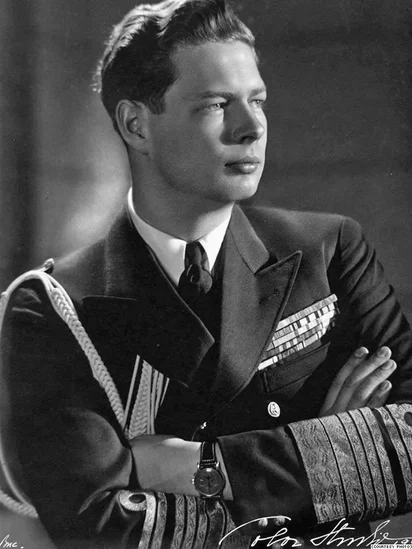
Romania commemorates its liberation from fascist occupation and switch to the Allied side during World War II. The observance honors King Michael’s courageous decision to oppose Nazi Germany.
Romanian veterans and citizens participate in memorial services and historical education programs. The day celebrates Romania’s contribution to Allied victory and democratic values.
